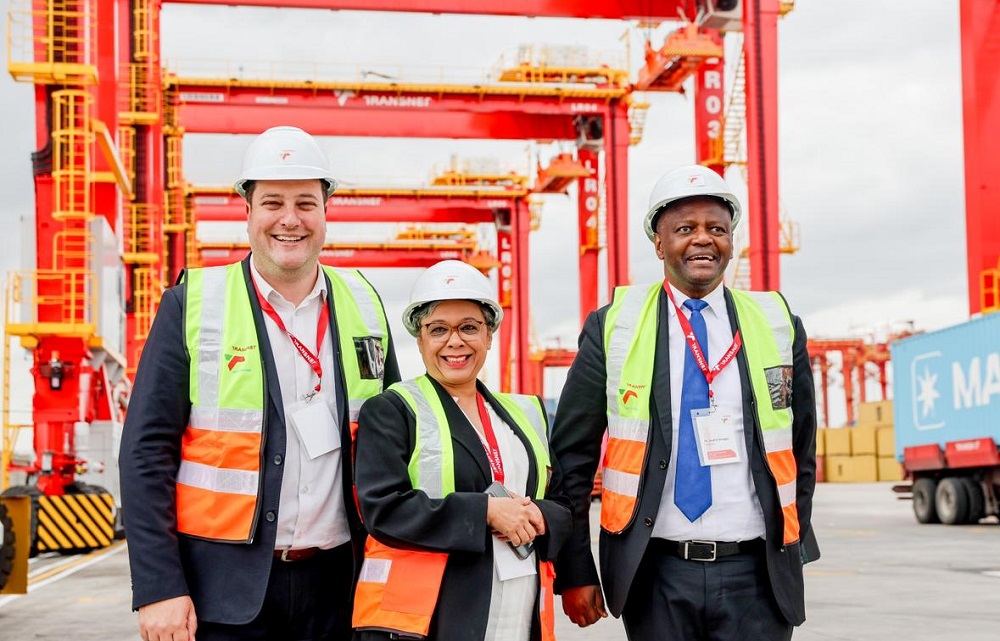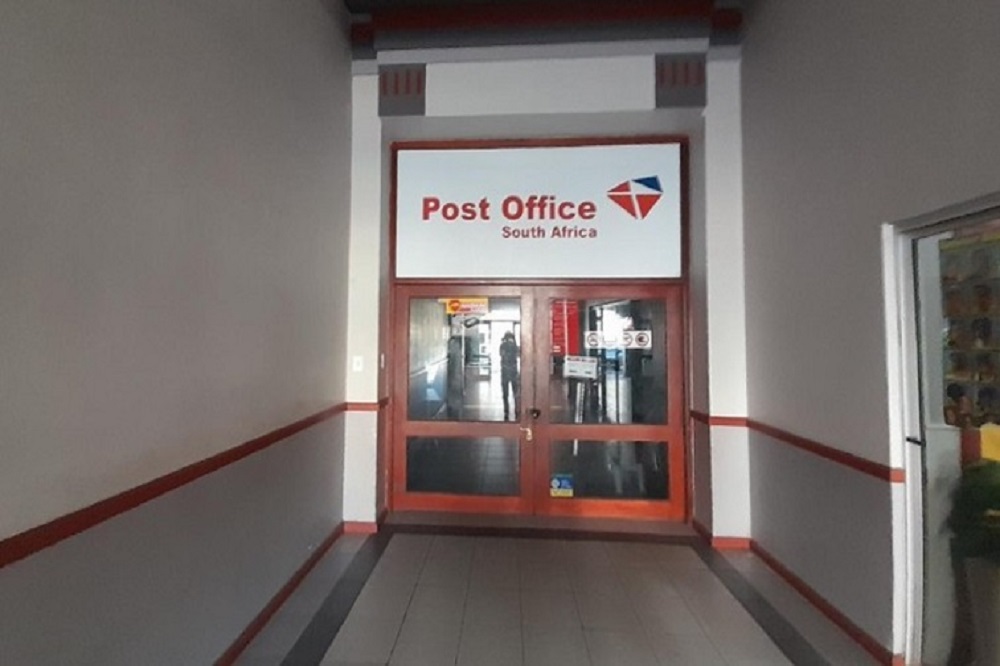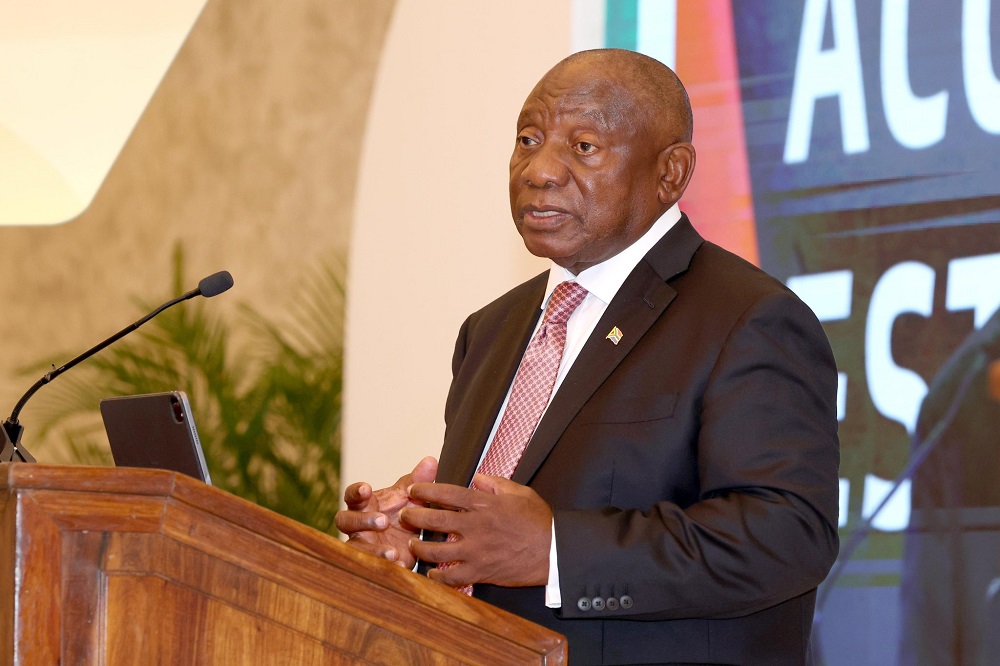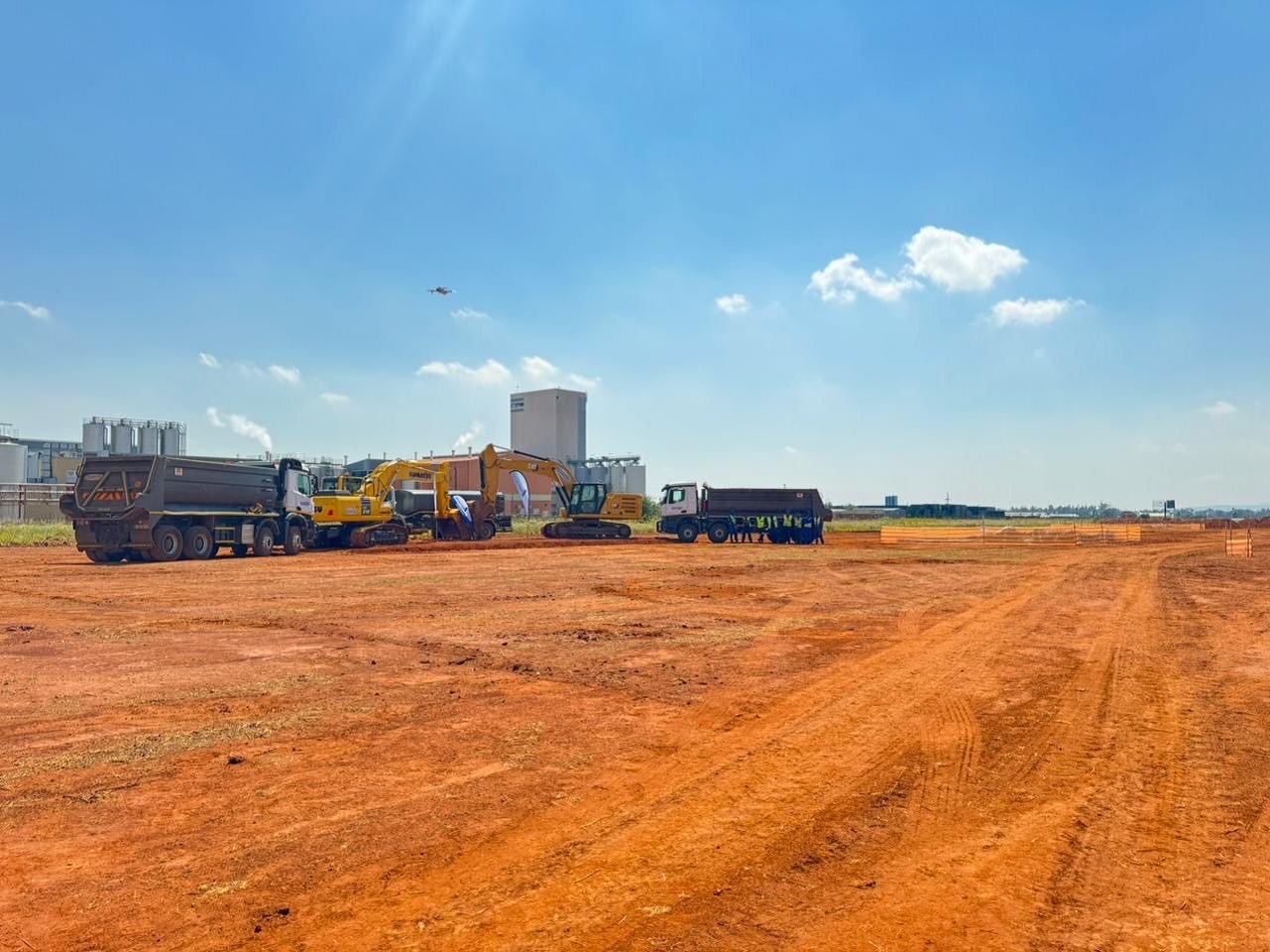-
(L) Cape Town Mayor Geordin Hill-Lewis (C) Transnet GCEO Michelle Phillips (R) Transnet Board Chairperson Dr Andile Sangqu at the Cape Town Terminal
Transnet’s investment of R3.4 billion for the Cape Town Container Terminal has been hailed as a boost for the economy of the Western Cape.
The entity has acquired a fleet of brand-new rubber tyred gantries which are said will reduce backlogs and improve the terminals’ efficiency.
Today, the Cape Town Container Terminal (CTCT) launched nine new rubber-tyred gantry cranes (RTGs) to optimise operational efficiency and increase volume throughput.
The nine cranes are part of a fleet of 28 RTGs acquired as part of Transnet Port Terminals’ (TPT) R3,4 billion… pic.twitter.com/pJKpMoek9x
— Transnet SOC Ltd (@follow_transnet) September 17, 2025
The Cape Town Port Terminal is a gateway for about 55 percent of Western Cape’s agricultural exports to the rest of the world. And it’s crucial for it to perform optimally.
“So hopefully with this beautiful investment with these new machines the harbour will start to work faster more efficiently. We will start to see that injection of growth into the city. It’s very important for Cape Town,” says Cape Town Executive Mayor Geordin Hill-Lewis.
Transnet says the new fleet of the cranes affectionately known as ladies in red is part of a massive investment to be done in the next few years to get ports and rail networks up to standard.
“You have a responsibility you now need to look after those machines in the same way that you drive your car. We cannot have accidents nothing at the expense of safety but you know we have some of the best planners and we have some of the best operators, let’s show this country what we are capable of doing,” says Transnet GCEO Michelle Phillips.
In addition, the entity says ports are crucial for a functioning supply chain.
“These new machines are going to improve cargo flows allowing us to move more containers faster and more reliable thus directly addressing some of our most pressing operational challenges while boosting our capacity to handle growing volumes,” says Transnet Board Chairperson Dr Andile Sangqu.
Labour unions have also welcomed the investment.
“It definitely guarantees job security. I think in the Western Cape and all of South Africa and myself as representing SATAWU, I think our number one gain is to get job security and this is a blessing in this terminal,” says SATAWU’s Shaun Rossouw.
“It means that they can improve, they can make sure that we improve our productivity because long time now we have a problem in terms of we can’t reach out targets,” says UNTU’s Ply Wevers.











